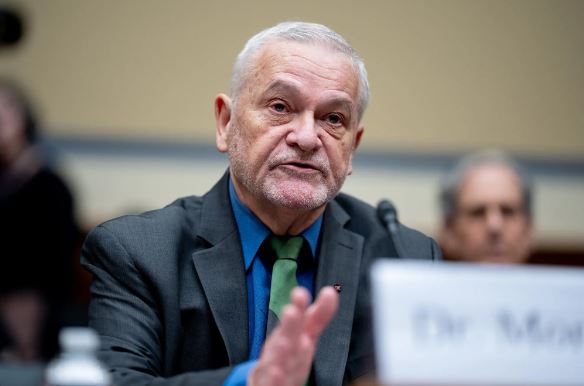House Republicans accused National Institutes of Health (NIH) officials of orchestrating a “conspiracy at the highest levels” to conceal public records related to the origins of the Covid-19 pandemic. The lawmakers vowed to expand their investigation, revealing emails in which senior health officials discussed evading federal records laws.
These accusations come just days before Dr. Anthony S. Fauci, a former NIH official, is scheduled to testify before a House panel. The Select Subcommittee on the Coronavirus Pandemic has released private emails suggesting that some NIH officials deleted messages and tried to bypass public records laws amid scrutiny over the pandemic.
Emails suggest that even NIH officials responsible for producing records under the Freedom of Information Act (FOIA) may have helped colleagues avoid their obligations. FOIA allows the public to obtain copies of federal records.
In another email from July 2020, Dr. Morens reassured collaborators about sending notes regarding a sensitive government grant to his official email account, saying, “I have spoken to our FOIA folks” and “I should be safe from future FOIAs.” He cryptically added, “Don’t ask how….”
These emails were from Dr. Morens’s personal email account, which the House panel subpoenaed last month, accusing him of using it to avoid public records disclosures.
House Republicans also released emails implicating another NIH official in efforts to evade public records laws. In a June 2021 email discussing global biosafety practices, Greg Folkers, a former chief of staff to Dr. Fauci, referred to a fact sheet from EcoHealth as “Ec~Health,” a misspelling lawmakers said was a deliberate attempt to evade FOIA keyword searches. In another email, Mr. Folkers rendered virologist Kristian Andersen’s name as “anders$n.”
Experts on record retention policies said these actions reflect poor transparency practices across federal agencies, where officials misspell words in emails, miss deadlines for responding to records requests, and use personal emails to avoid records laws. The NIH emails suggesting the agency’s federal records office coached officials on how to subvert the law represent a significant departure from best practices.
A spokeswoman for the Department of Health and Human Services (HHS), which includes NIH, did not address the FOIA office’s actions but stated that HHS policy forbids using personal emails for official business. She emphasized HHS’s commitment to FOIA and federal records management requirements.
At a recent House panel hearing, Dr. Morens, currently on administrative leave, denied being instructed on how to avoid records laws and apologized for some of his emails, explaining that he thought they were private comments to friends.
Attempts to reach Mr. Folkers, who left NIH last year, were unsuccessful. Dr. Keusch called the House panel’s accusations “dangerous to science.” Dr. Daszak denied withholding documents related to the pandemic’s origins.
The investigation into NIH record-keeping practices stems from the House panel’s broader inquiry into the Covid-19 pandemic’s origins. Although the released emails do not support theories that NIH-funded lab work in China led to the outbreak, they reveal NIH officials’ concerns about potential political backlash.

